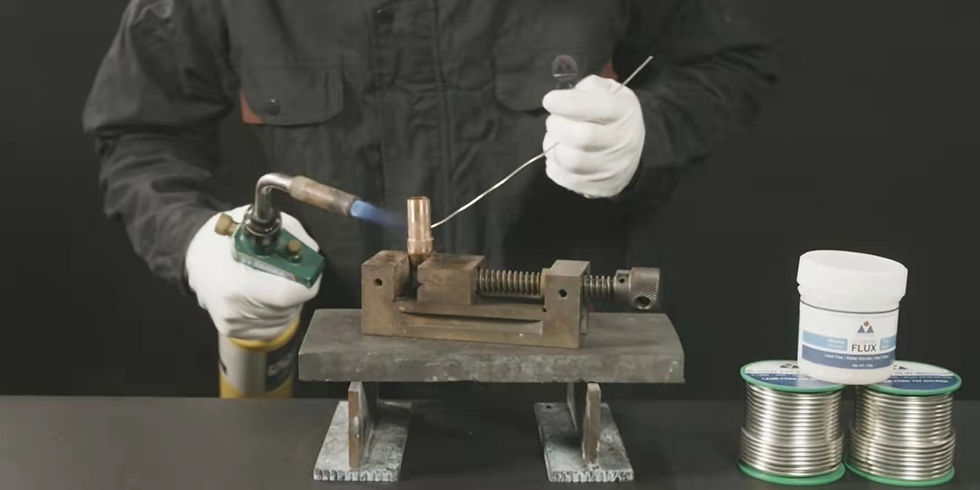Flux-Coated Brazing Alloys and Their Requirements
- Tony, the Welder

- May 21, 2020
- 2 min read
Flux-coated brazing alloys are a type of composite brazing products which have brazing flux coated on the surface of preformed alloys. The most common forms are brazing ring and brazing rod. Flux-coated brazing alloys can help manufacturers to achieve production automation. When applied in induction brazing or furnace brazing, flux-coated brazing alloys allow brazing alloy and flux to be supplied based on a fixed quantity ratio, which significantly reduces the release of brazing flux. On the other hand, flux-coated brazing alloys also enhance production efficiency and ensure sound brazing performance. Due to these advantages, application prospect for flux-coated brazing alloys is quite broad.

During brazing processes, the function of flux coating is the same as brazing flux in powder form, which include: removal of oxides from base metals, isolation from air, which prevents oxidation, and reduction of interfacial energy. Flux coating should meet the following requirements,
1. Strong cohesiveness;
2. Suitable thickness
3. High density;
4. A certain degree of plasticity;
5. Strong oxide-removing ability;
6. Melting point and the lowest active temperature should be lower than the melting point of brazing alloy;
7. High thermal stability;
8. Low surface tension, low cohesiveness and good fluidity within the brazing temperature range, so as to ensure good braze forming performance;
9. Residue should be easy to clean after brazing;
10. Flux coating and its residue should not be highly corrosive to base materials and the braze.


Common preformed brazing alloys in flux-coated brazing products:
1. Copper-based brazing alloy. Major form of copper-based brazing alloy is ring, and it is suitable for the brazing of copper alloys;
2. Silver-based brazing alloy. Major form of silver-based brazing alloy is rod, and it is suitable for the brazing of stainless steel, cemented carbide, titanium alloy, copper alloy and various other materials.




Comments